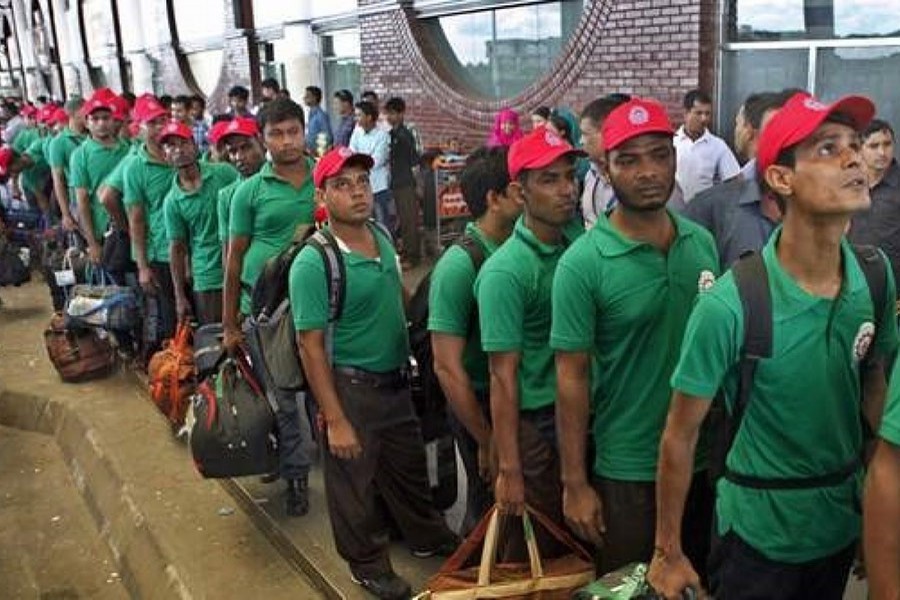Although the coronavirus pandemic has not yet swooped on this land with the same murderous frenzy as in many countries, its impact cannot be measured in terms of deaths and cases of infection and government spending to save lives. We often talk about the fallout of shutdown, particularly the closure of innumerable small and informal businesses. But the scope and space of the impact are multidimensional and far-reaching, and cut across so many foreseeable and unforeseen trajectories.
The drastic fall in exports -- a plunge by 83 per cent in April -- is no surprise with orders cancelled, value chain destroyed, and virtually no avenue open to transact with overseas buyers. The shutdown of garment factories, many with export orders, for more than a month, and orders worth more than $ 3.0 billion suspended or totally snapped, is but one side of the picture. The misery of the highest foreign exchange earning sector of the country means uncertainty of the livelihood of three and a half million workers and around 20 million of their family members depending on them.
That said, the worst still in waiting is job loss of millions of expatriate workers concentrated mostly in the Middle Eastern countries. Workers' remittance, the second highest source of earning from abroad, next to garment export, is sure to face unprecedented slump in the months ahead. Workers are returning empty-handed, and though most of them are stranded overseas for want of flights, they are soon to make it to their homes in thousands as flights reopen.
Bangladesh has expat workers in many countries besides the Middle Eastern region, in Europe and parts of Asia. In the ME alone, the number of workers is around a staggering 3.0 million-- 75 per cent of the total Bangladeshi expatriate workers. In the situation that most host countries are now going through, it will be very difficult for them to retain the workers in their jobs and hence the looming fear of mass exodus of returnees is more than just challenging for Bangladesh to deal with.
Deportation of workers has already started. According to Expatriates Welfare and Overseas Employment Minister around 0.1 million Bangladeshis returned home since the coronavirus outbreak. In the past weeks, despite very few flights in operation, quite a number of workers returned home. According to a FE report, more than two thousand workers retuned in the past weeks from Kuwait, Oman, Bahrain and Saudi Arabia. It has been learnt that some of those deported were detainees in jails for being either undocumented or alleged involvement in crimes. All these host countries are going to deport more workers phase by phase. Kuwait has already sent a list of 4,428 workers whom they want to deport immediately. The number of deportees in the first phase will be around 15,000. In Bahrain, as a news report says, 7,000 to 8,000 Bangladeshi workers have lost their jobs.
The picture is only a part -- a beginning of a potentially threatening scenario for the entire economy. Very few countries in the world count on workers' remittance so heavily as we do -- not only for substantially contributing to the foreign exchange reserve but also for meeting livelihood needs of millions of families back home. Given that the vast majority of the workers are unskilled, engaged mostly in manual works in construction sites and development projects, chances are high that the host countries, particularly the Middle Eastern countries, would prefer to halt a good number of such projects. The drastic fall in oil prices has also signaled a serious note of alarm for these countries, and it is highly likely that they would cut expenses in paying wages to foreigners but for unavoidable services.
A bigger picture would emerge in a month or so. Observers say the number of returnees could be several hundred thousands. The foreign minister, reportedly, has requested the host governments not to send/deport workers in high numbers at a time, but gradually, in phases. Clearly, this is all he can say at a time when the host countries are finding it difficult to cope with the pandemic-induced difficulties.
What is alarming for the returnees is the utter lack of assurance whether they, even after a long time lag, can get back to work in those countries -- in post-corona times. While rehabilitating the economies would be the prime concern of the host countries, that too with cautious spending, job-seekers from Bangladesh might not find things at all easy.
There is no reason to think that the government is less worried about the situation. The expat welfare ministry should be able to anticipate how things are likely to unfold in the worst case scenario, and also what it can do to face the situation in order to avert the negative consequences.


